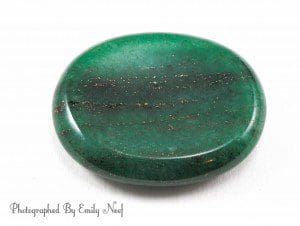May is recognized as Mental Health Month. During the following month, time is taken to raise awareness and educate the public about the realities of living with mental illness.

May is recognized as Mental Health Month. During the following month, time is taken to raise awareness and educate the public about the realities of living with mental illness.

The Self Evaluator tool is a Project of the Jed Foundation and was developed for ULifeline by Duke University School of Medicine.
 It screens for thirteen of the most common mental health conditions that college students face. This screening does not provide a diagnosis, but identifies problems that could be impacting thoughts, feelings and behaviors. The screening process also provides information on these conditions and how to reach out for help.
It screens for thirteen of the most common mental health conditions that college students face. This screening does not provide a diagnosis, but identifies problems that could be impacting thoughts, feelings and behaviors. The screening process also provides information on these conditions and how to reach out for help.
This tool was created for college students and we think it is super useful!
In it your adolescent can…
Then …
There is also an Ask the Experts Tab with FAQ about certain topics – simply use the drop down menu to choose a topic area.
Do you think this screening tool is useful? Do you think that being able to get a sense of what might be happening with your child and what to expect would be good? How do you think a tool like this may impact the well being of adolescents?
How could simply talking to someone make you or your child feel better? Sometimes, when you feel so bad, you think there isn’t anything someone could possibly say or do to help you feel better. Yet therapy helps millions of people live happier more fulfilling lives.
“You don’t expect the kind of problems that [fame] brings with it. I felt that I had to solve everyone’s problems. I was hit by this tsunami of demands. I felt overwhelmed. And I was really worried that I would mess up … I had to do it [therapy] again when my life was changing so suddenly — and it really helped. I’m a big fan of it, it helped me a lot.”

Have you heard of “worry stones” before? A worry stone is a stone that you can carry in your pocket (or anywhere on you) that can be useful in helping to relieve anxiety or other negative feelings. Worry stones are also know as palm stones or thumb stones and are smooth, polished gemstones, usually in the shape of an oval with a thumb-sized indentation. They usually are about the size of a 1/2 dollar coin and can be easily hidden in your hand.
They are often used by holding the stone between your fingers and thumb and gently rubbing your thumb back and forth across the stone. This action can be very grounding and comforting. Also the act of self-soothing can be quite empowering. It is often the smallest objects and actions that have the most powerful effects!
Worry stones come in many colors and can be found from many sources. There are gemstone stores and Etsy sells worry stones for under $5.
Do you think a worry stone may help you or your adolescent? Do you know anyone who uses a worry stone? Do you or your child know or participate in a similar coping mechanism? Tell us about your experiences or if you’d add this coping mechanism to your tool box!
Have you thought about how seeing an image can change the way you feel about something? Maybe you hate a certain fast food chain but they post a new sandwich that looks amazing and it changes your mind. Pictures are powerful.
Some of the pictures people post online about mental illness can make it seem like only people who always look like life is terrible have mental illness. That is a form of stigma – and it separates us from each other. It can make our kids feel like they are different from everyone else. The truth is people with mental illness are all around us and they look like anyone – smiling or not smiling – and usually they are not clutching their head.

For those coping with depression, antidepressant medications may be a very effective way to ease feelings of sadness and hopelessness.
Kid President thinks the words we say can help make the world more awesome. Here is his list of 20 things we should say more often.
What would you add to this list? What should adolescents (and adults!) hear more often?